3618 videos match your search.
 |
Athanasios Paraskevopoulos Exploring the SIR model's utility in understanding infectious diseases, this study delves into its fundamentals and application. Using the 1960s Hong Kong flu outbreak in NYC as a case study, ... |
 |
Kevin Daily Discover the possibilities of game development solely within Wolfram Notebooks. Our main focus is to guide you through the process of creating a first-person gaming experience using Graphics3D and ... |
 |
Sinuhé Perea Learn about finite lattice systems in the context of simple rewriting rules. Based on discrete manifolds and Cayley graphs, we look for the set and taxonomy of simple rewriting rules that preserve properties ... |
 |
Nick Zitzmann and Rob Raguet-Schofield In this talk, we will go over our applications available on Apple mobile devices and how you can use them to view your notebooks or run Wolfram|Alpha queries while ... |
 |
Watch the preview video by the course author, showing the components of this interactive course. Learn about probability and gain data science insights using Wolfram Language.
Track your course progress ... |
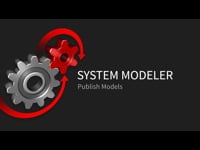 |
Publish models and libraries by easily creating installers. Include license conditions with additional assets like CAD objects, images and dependent libraries. |
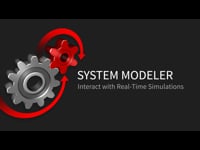 |
Manipulate parameters and inputs to see their effect on simulation in real time.
|
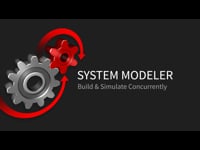 |
Continue working on models and experiments even while validating, building and simulating models. |
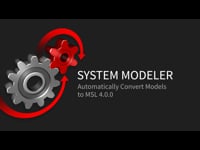 |
Automatically convert your models and libraries to be compatible with Modelica Standard Library 4.0.0. |
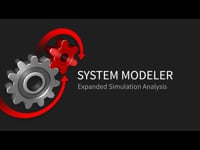 |
Analyze model results by plotting any expression of model variables. Store your expressions and FFTs as model plots for reuse later. |
 |
Learn the basics of Mathematica and get started using it in your day-to-day work. This video will show you how to create and organize content in your notebook, use free-form ... |
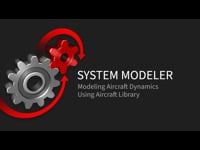 |
How to model and simulate the flight of an aircraft design using Wolfram System Modeler. |
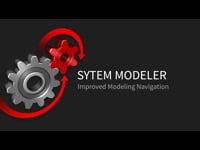 |
Navigate through models in Wolfram System Modeler with several new convenience features. Go directly to the component declaration, jump to relevant class documentation or find a component in the class ... |
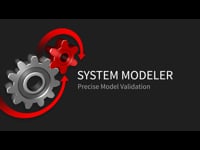 |
Precisely detect errors in Wolfram System Modeler using improved error messages and warnings that link directly to the relevant line of code. |
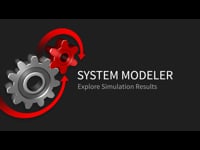 |
Explore model behavior using interactive control panels in Wolfram System Modeler. Each control panel contains interactive controls such as sliders, popup menus, and checkboxes. |
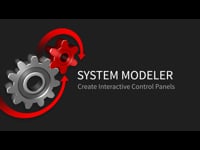 |
Create control panels for your simulations in Wolfram System Modeler to explore model behavior interactively. Each control panel can consist of a list of plots and a list of control ... |
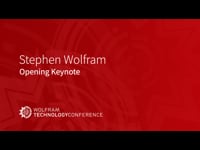 |
Join Stephen Wolfram to kick off the start of the conference. |
 |
Roman Maeder Using the Wolfram Language, it is possible to connect to other Wolfram Language engines (kernels) both locally and on remote computers. Kernels can be used for ad-hoc evaluations, as session kernels of a notebook or bundled for parallel computation. Support for discovering, configuring and managing kernel resources is now available across a wide variety of environments. We will discuss local ... |
 |
Paul Abbott The 3-4 week Wolfram Summer School Educational Innovation track provides hands-on Wolfram Language training, extensive high-quality mentoring from experts and Wolfram Research developers sharing their experience in making educational technologies and quality feedback from other like-minded educators. In this presentation I will give an overview of the Wolfram Summer School ... |
 |
Roman Maeder Iterators are a generalization of lists that are accessed one element at a time. Iterators allow us to work with data whose length is infinite or unknown, and they avoid the explicit generation of all elements at the same time, by using incremental generators. First presented a year ago, this project has now matured, and I would like to share some of the improvements made, focusing on programming techniques for paclet design, seamless integration of iterators into ... |